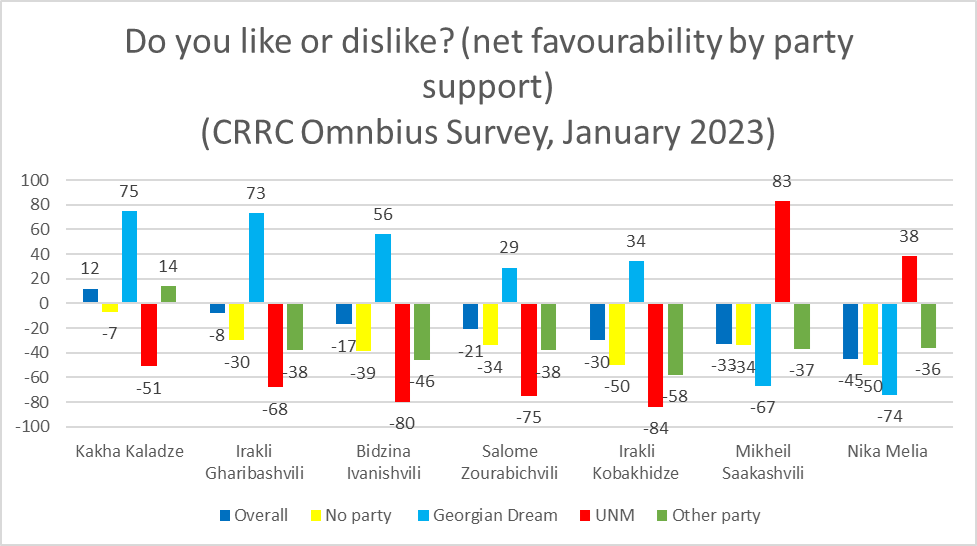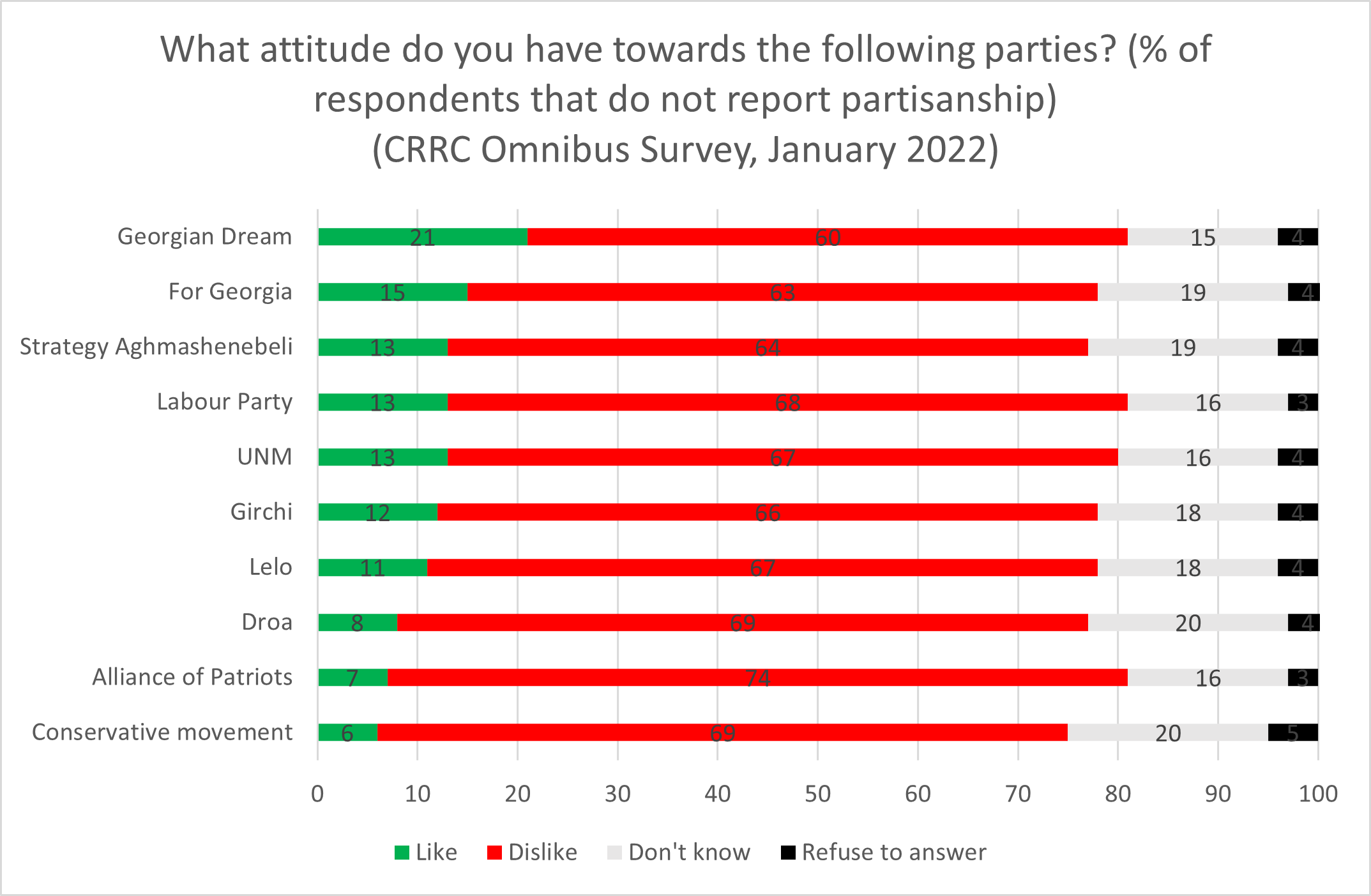A CRRC analysis found that, of the plurality of Georgians who do not feel any party aligns with their views, most dislike Georgia’s leading political figures and parties.
Controversy over Georgia’s leading politicians’ actions and statements is commonplace. Prime Minister Irakli Gharibashvili’s recent statements on the war in Ukraine and the subsequent criticism surrounding it is just one recent example.
Typically, an individual’s reaction to such controversy is connected to their political views and party alignment. However, a plurality of Georgians either do not know which party their views align with or feel their views do not align with any party, according to CRRC Georgia’s January 2023 Omnibus survey. This segment of the Georgian public is critical of all political figures and parties they are surveyed on, regardless of a politician’s political affiliation.
Participants of CRRC Georgia’s Omnibus Survey were asked which party best aligned with their views. A plurality (47%) of Georgians either do not know or believe no party aligns with their views. A quarter (24%) indicated their views align with Georgian Dream, while 11% reported the United National Movement (UNM) did. 12% chose other parties, and the remaining 6% refused to answer.
As the plurality of respondents do not know, or feel no party aligns with their views, what do they think of some of the country’s leading political figures?
Respondents that indicated don’t know or no party aligns with their views disliked all the political figures they were asked about. However, this group was most critical of Georgian Dream party chairman Irakli Kobakhidze and former UNM chairman Nika Melia with a net favourability of -50% each, with 13% reporting they liked Kobakhidze, and 63% reporting they disliked him. The nonpartisans, and the public more generally, were least critical of Tbilisi Mayor Kakha Kaladze, with a net favourability of -7% amongst those who supported no party. The rest of the political figures in the survey fell somewhere between, all with negative net favourability among this group.

The degree to which these respondents’ criticism is nonpartisan is reinforced by data from those that indicated either the Georgian Dream party or UNM was closest to their views. Among these partisan respondents, likes and dislikes sharply align with partisanship.
Georgian Dream supporters greatly dislike political figures associated with the UNM, with former President Mikheil Saakashvili receiving -67% net favourability, and former party chairman Nika Melia -84% net favourability. Support for political figures associated with Georgian Dream is consistently positive. However, party chair Irakli Kobakhidze and President Salome Zourabichvili, an independent who was strongly supported in her election by Georgian Dream, received the lowest net favourability scores of the group with 34% and 29%, respectively.
Similarly, those indicating the UNM is closest to their views strongly supported opposition-aligned political figures, while being critical of those associated with Georgian Dream. Amongst this group, for example, Prime Minister Irakli Gharibashvili received a net favourability score of -68%. In contrast, UNM supporters have highly positive attitudes towards Saakashvili, who had a net favourability of 83%, the highest net favourability rating of any political figure in all groups regardless of party.
Opinions on the two leading parties among nonpartisans were largely critical, as 60% stated they disliked Georgian Dream while 67% disliked the UNM. Although the group was more likely to like the ruling party (21%) than the opposition (13%), positive perceptions of both parties were relatively uncommon.
This group was similarly critical of all other parties they were surveyed on, with all being disliked by a majority (at least 60%), or more of the group. The most liked of the third parties was former Prime Minister Giorgi Gakharia’s For Georgia, with 15% of those in the group of nonpartisans questioned indicating they liked the party. The least liked was the far-right Conservative Movement, at 6%.

Note: Response options to the question on the above chart included like a lot, like more than dislike, dislike more than like, and do not like at all in addition to don’t know, refuse to answer, and I have not heard of this party. The chart above merges responses of like a lot and like more than dislike as like. It also combines responses of dislike more than like and do not like at all into dislike.
The data shows that party allegiance, or lack thereof, is associated with Georgians’ opinions on political figures. As a plurality of those surveyed do not align themselves with any one party’s beliefs, many Georgians are left not sympathising with any party, and largely dislike most major political figures.
This article was written by Zachary Fabos, an International Fellow at CRRC Georgia. The views presented in the article are the author’s alone and do not necessarily represent the views of CRRC Georgia or any related entity.










